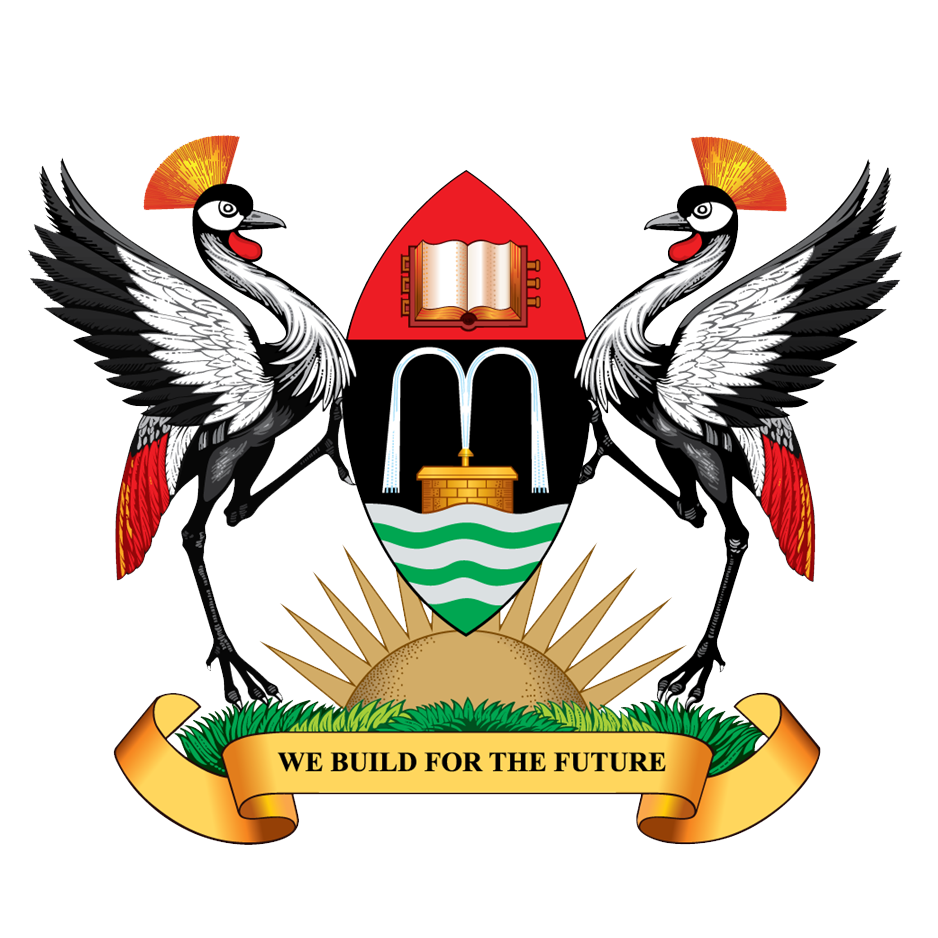pr.cns@mak.ac.ug
MakCoNAS Promotes Science Education in Schools through Astronomy
Overview
The Ugandan government has increasingly recognized the critical role of science education in driving the nation’s economic development. As such, it has put in place deliberate policies aimed at popularizing science education in schools. This initiative seeks to equip the youth with the knowledge and skills necessary to contribute effectively to the country’s development. Since 2004, science education has been made compulsory in lower secondary schools, and the Uganda Government has continuously emphasized the importance of science and technology through policies like the National Science, Technology, and Innovation (STI) Policy, introduced in 2009. These policies aim to create a strong foundation for the country’s “Transformation for Prosperity,” focusing on technological innovation and development. The introduction of astronomy and space science as part of the curriculum supports this vision, offering students the tools to explore scientific concepts that will drive future innovation.
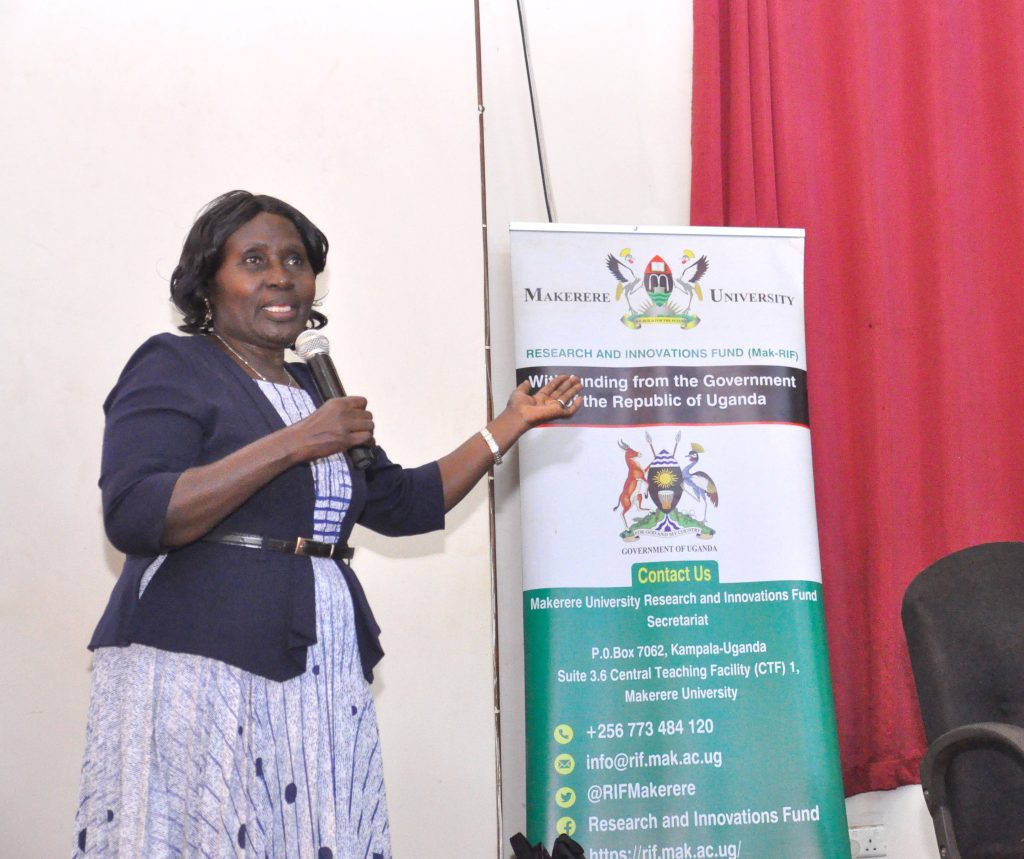
About the Project – Use of Astronomy and Space Science to Promote Science Education in Schools
In an initiative geared towards bolstering science education in Uganda, Makerere University Department of Physics is leveraging the wonders of astronomy and space science to ignite curiosity and enthusiasm among learners. The project, led by Prof. Florence Mutonyi D’ujanga from the Department of Physics has reached 10 schools in Kampala, Luwero, and Mukono districts, using the vast universe to inspire the next generation of scientists, engineers, and mathematicians. The astronomy outreach activities have impacted numerous schools across different regions in Uganda. The initiative started during the COVID-19 lockdown, with initial outreach to nearby schools in Kampala. As the programme gained momentum, it expanded to various districts, benefiting students from both primary and secondary levels. The schools that have participated in the programme include, Kampala: Makerere College School and Makerere CoU Primary School, Luwero: Mulusa Academy (Wobulenzi), Wobulenzi Bright Parents, Janan Luwum S.S., and Janan Luwum Nursery & P/S, MUkono: Our Lady of Africa S.S., Kyesereka CoU P/S, Mpoma Royal College, and Mpoma Junior School.
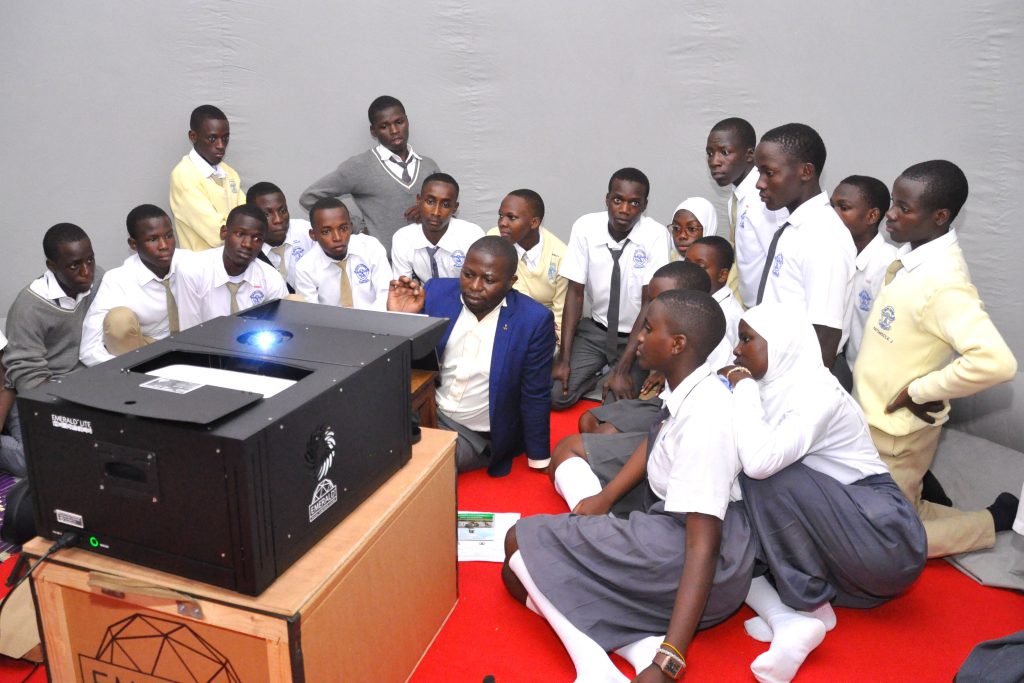
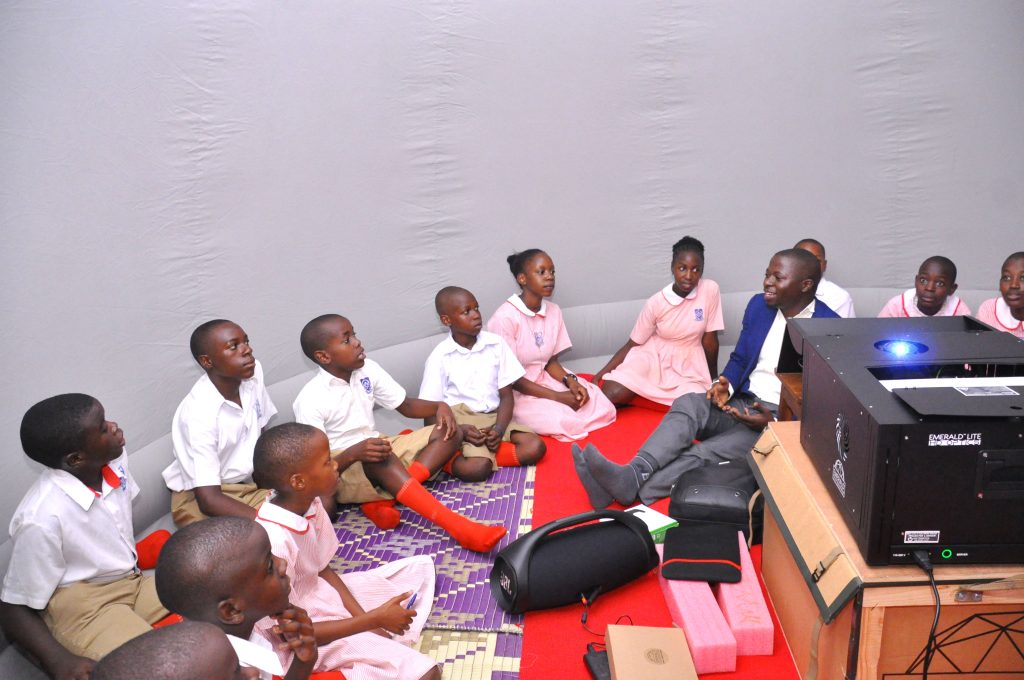
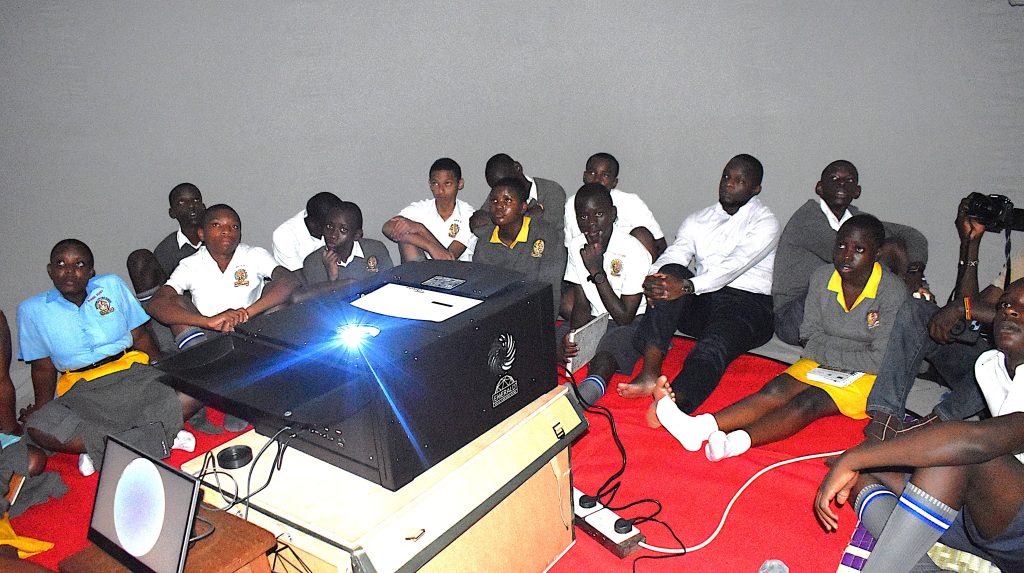
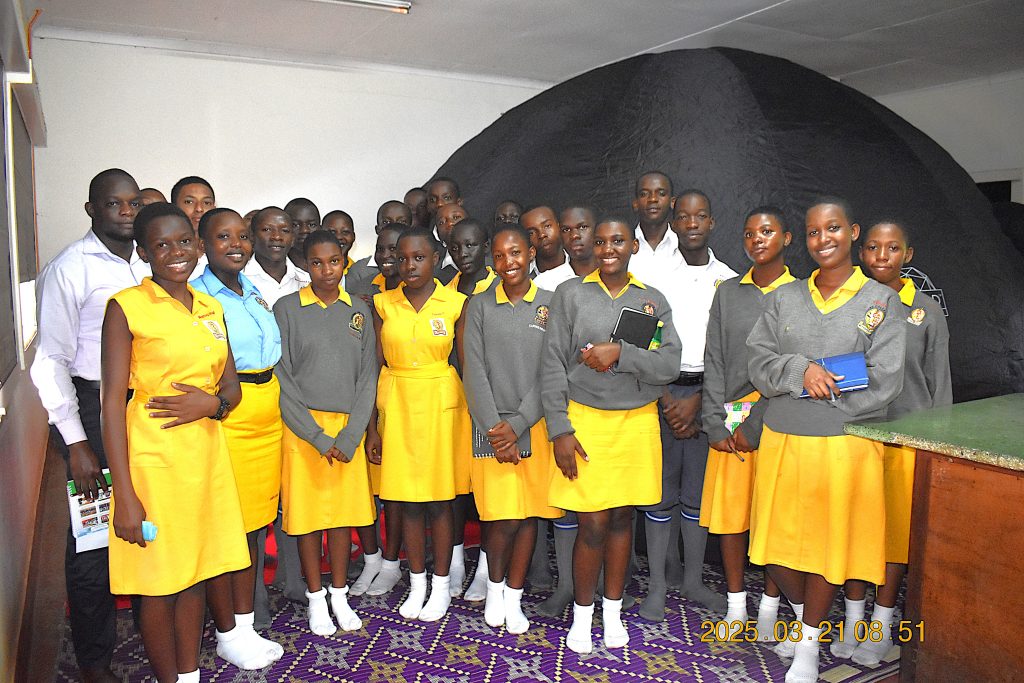
Aims and Objectives of the Project
Funded by the Government of Uganda through the Makerere University Research and Innovations Fund (MakRIF), the central aim of this initiative was to use astronomy and space science to capture the imagination of students, encouraging them to embrace the study of science and mathematics. “By engaging students in hands-on, interactive learning activities, the project seeks to improve their performance in these critical subjects. The initiative focuses on making science enjoyable, accessible, and inspiring, fostering a positive attitude toward the subject from an early age,” explained Prof. D’ujanga.
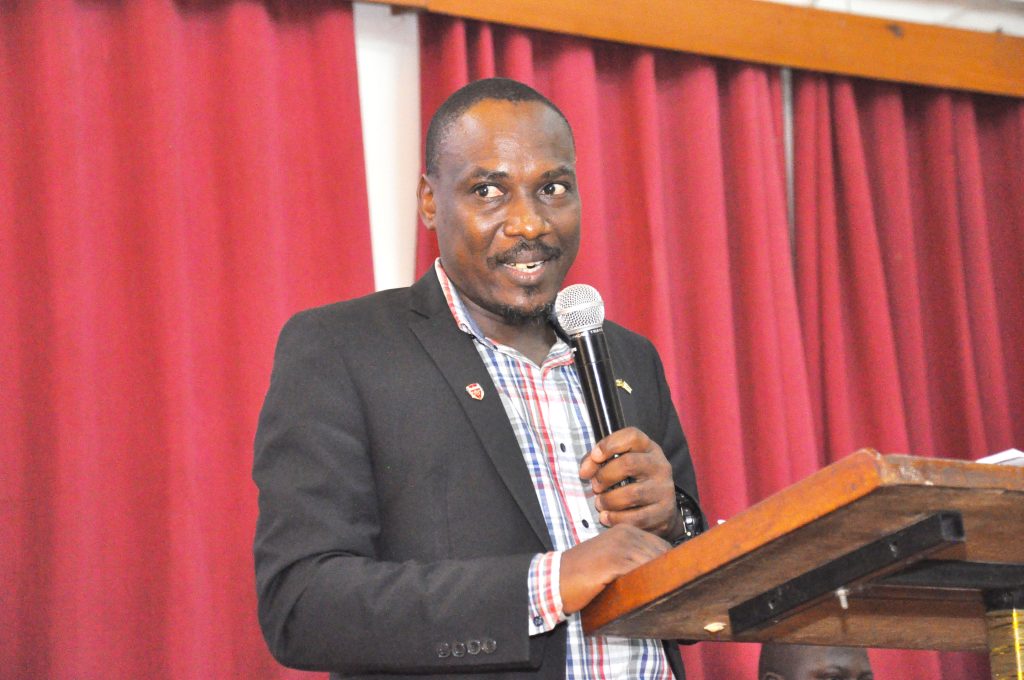
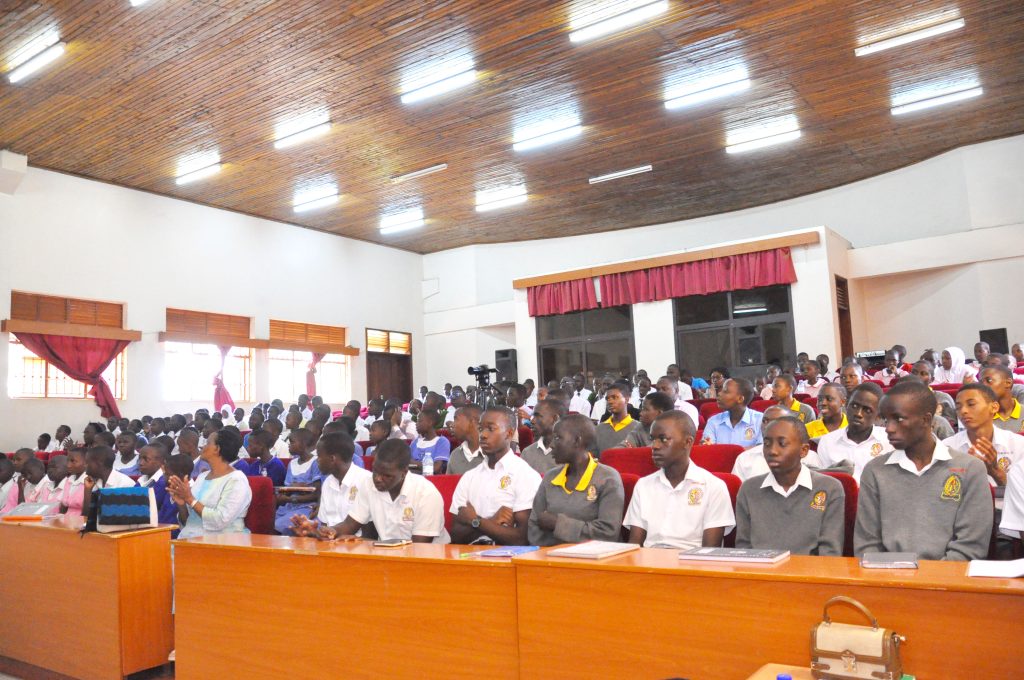
Activities conducted
The project began with a questionnaire to assess the students’ initial understanding of astronomy, followed by tailored outreach activities that addressed gaps in knowledge and sparked excitement about the subject. The activities included;
- Telescope Assembly: Students learned to assemble telescopes using local materials, helping them gain a hands-on understanding of how astronomy tools function.
- Sky Viewing: Students had the opportunity to observe celestial bodies like stars, planets, and constellations, experiencing the universe up close.
- Cultural Astronomy Storytelling: This component introduced students to the rich cultural narratives surrounding astronomy, linking science with history and tradition.
- Astronomy Quiz Sessions: Fun, educational quizzes challenged students’ knowledge of astronomy, stimulating a deeper interest in the subject.
- Planetarium Shows: The project also featured immersive planetarium shows, which are a highlight for many students. These shows provided an exciting visual experience, where learners could see projections of stars, planets, and other celestial phenomena. The planetarium is at the heart of this outreach programme. Traditionally used for educational purposes in the field of astronomy, the planetarium has a hemispheric domed ceiling, which serves as a projection screen for images of celestial objects. The immersive environment fosters curiosity and excitement among learners, laying a solid foundation for further study in science. One of the main objectives of the planetarium shows is to break down the myth that sciences are difficult. By using visual and interactive methods, the project demonstrates that learning about space and the universe can be both fun and inspiring.
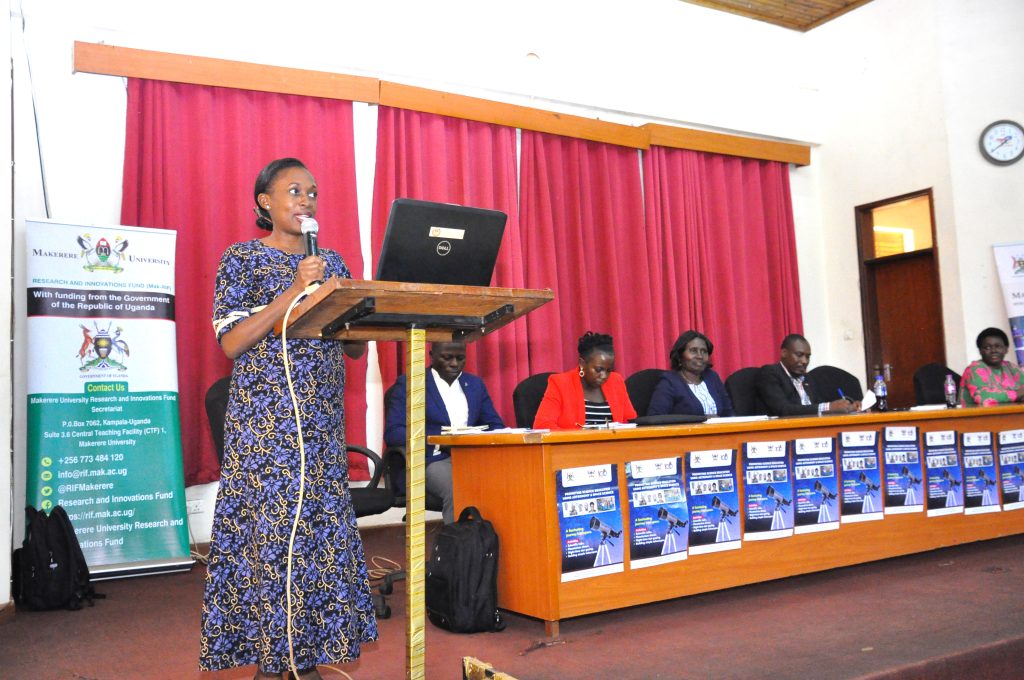
Project research dissemination event
On 21st March 2025, the project team hosted a dissemination event at Makerere University to present and share their research findings. The event was presided over by Prof. Winston Tumps Ireeta, the Principal of the College of Natural Sciences (CoNAS) and Acting Deputy Vice Chancellor in charge of Finance and Administration at Makerere University. The event was attended by students, school administrators, as well as representatives from MakRIF and the Ministry of Science, Technology, and Innovation. In her address, the Project Principal Investigator (PI), Prof. Florence D’ujanga, emphasized the importance of sparking curiosity in students to encourage them to pursue scientific studies. “By making astronomy and space science more accessible and engaging, this project seeks to inspire greater interest in science education, ultimately benefiting Uganda’s long-term development in critical fields such as technology, engineering, and mathematics,” she explained.
On behalf of MakRIF, Dr. Mercy Rebekah Amiyo expressed appreciation to the research team for their invaluable initiative in promoting the study of science through astronomy. Dr. Amiyo praised the team’s dedication to making complex scientific concepts more engaging. She called upon the project team to secure property rights and take proactive steps toward the commercialization of the project.
In his remarks, the Guest of Honour, Prof. Winston Tumps Ireeta emphasized the importance of nurturing scientists who understand principles rather than simply memorizing frameworks. He emphasized the importance of early exposure for children to develop an appreciation for science. He expressed gratitude to the Government of Uganda for its continued support towards research activities at Makerere University.
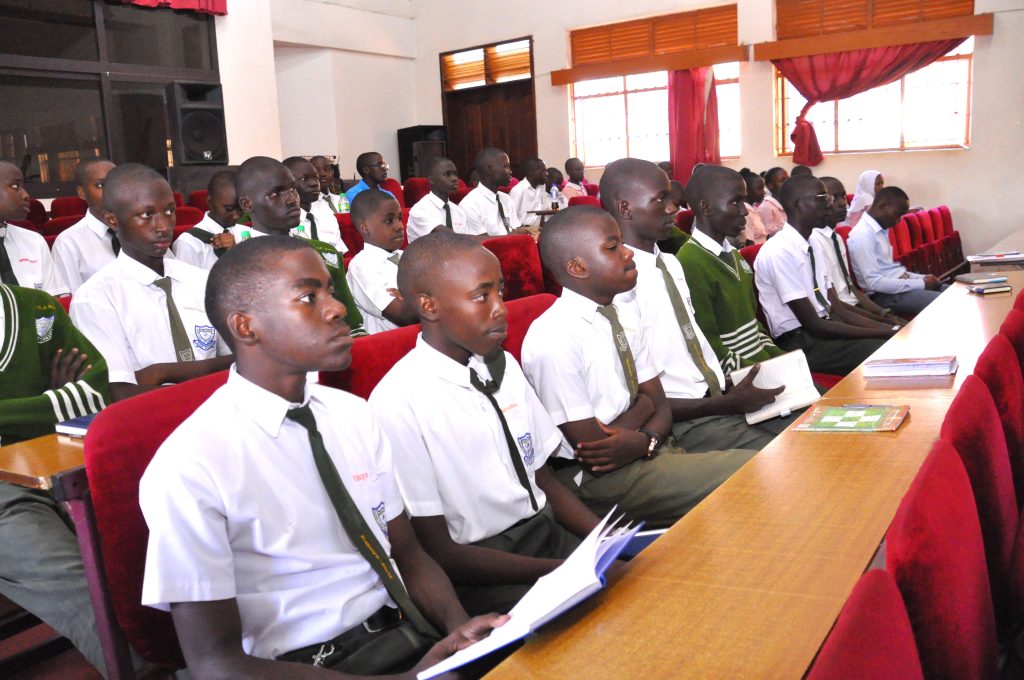
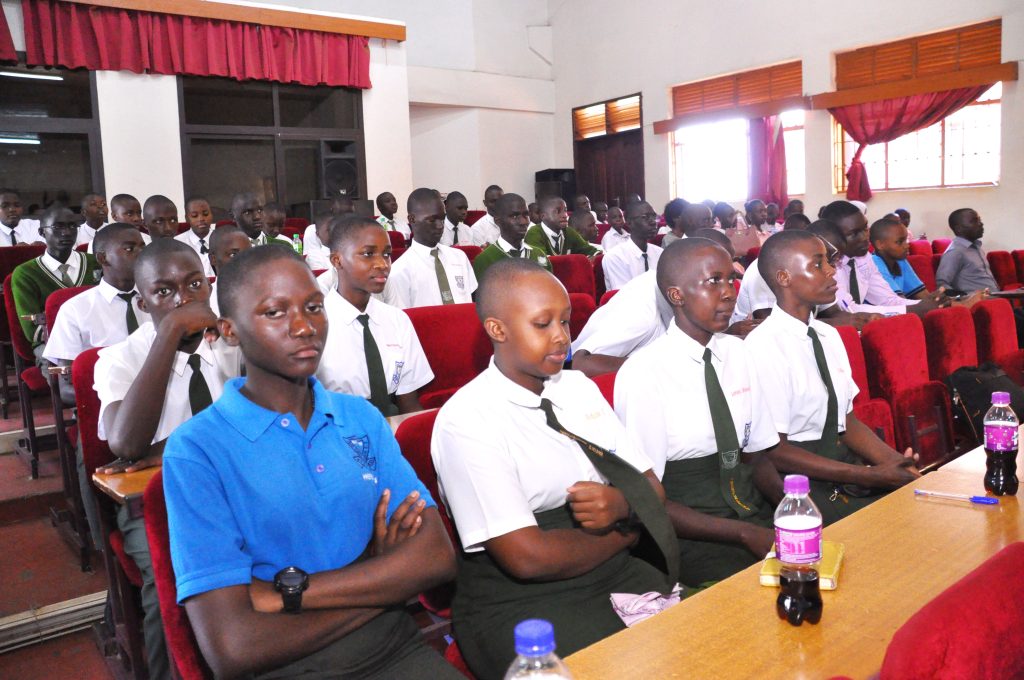
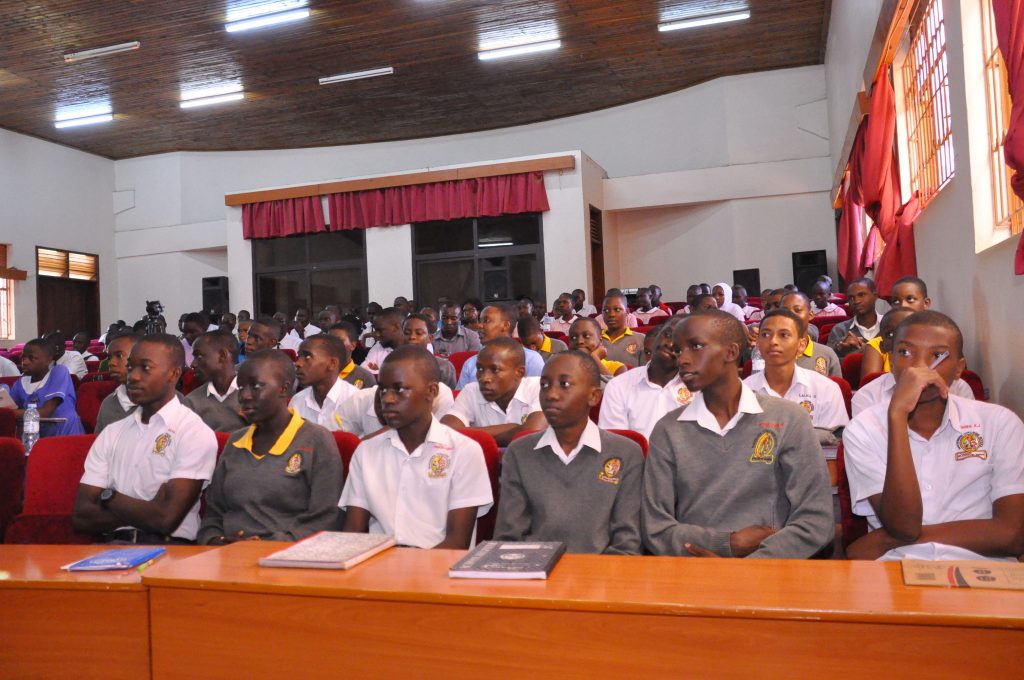
Testimonies by students
Sharing their testimonies about the project, Jonathan Mugabi and James Tanzinge, both S.4 students at Makerere College School, expressed heartfelt gratitude for the opportunity it provided. They noted that the project had ignited a newfound passion for research, significantly expanding their interest in exploring scientific topics. Through their participation, they were introduced to essential scientific vocabulary, which has helped to deepen their understanding of complex concepts. Additionally, the project exposed them to cutting-edge technology, fostering a sense of excitement and curiosity about the role of innovation in science. As a result, both students have developed a strong desire to continue their studies in the sciences at a higher level, inspired by the hands-on experiences and knowledge they gained from this initiative.
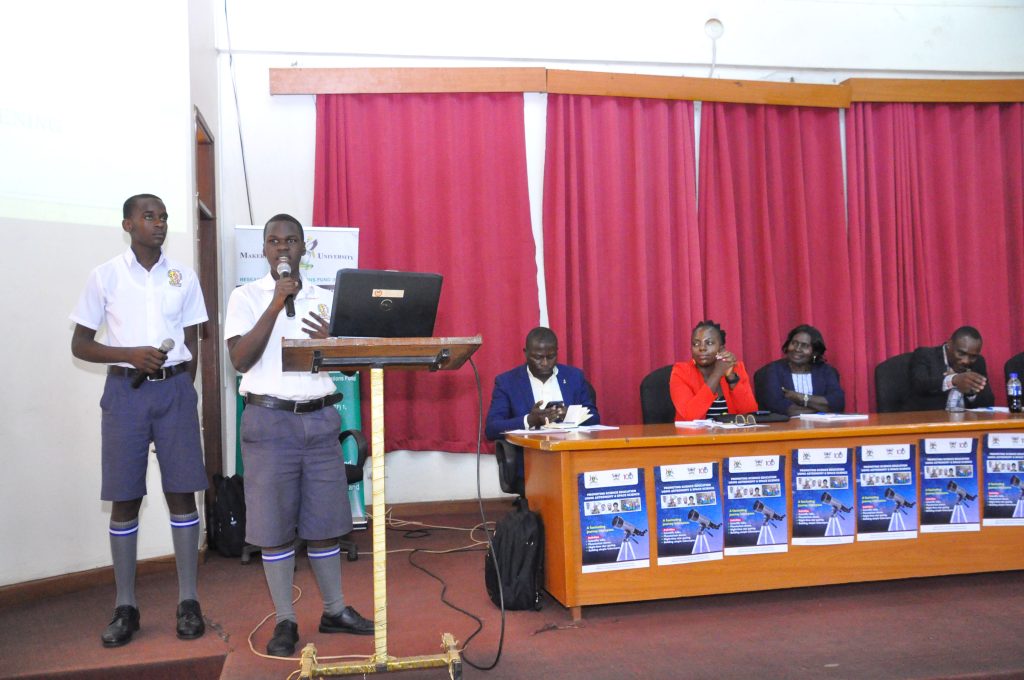
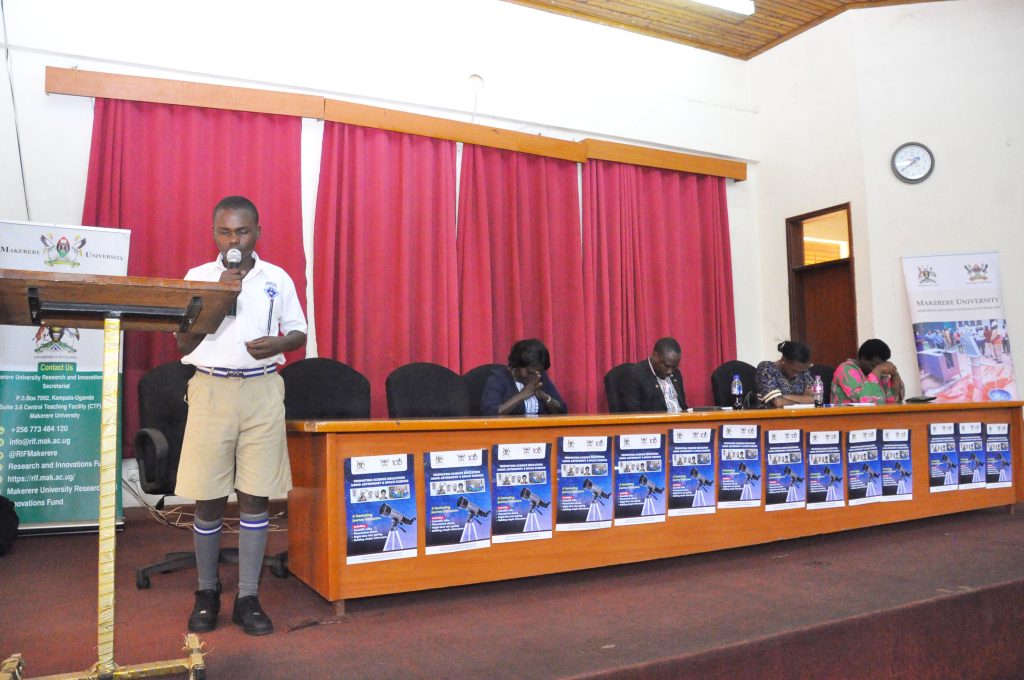
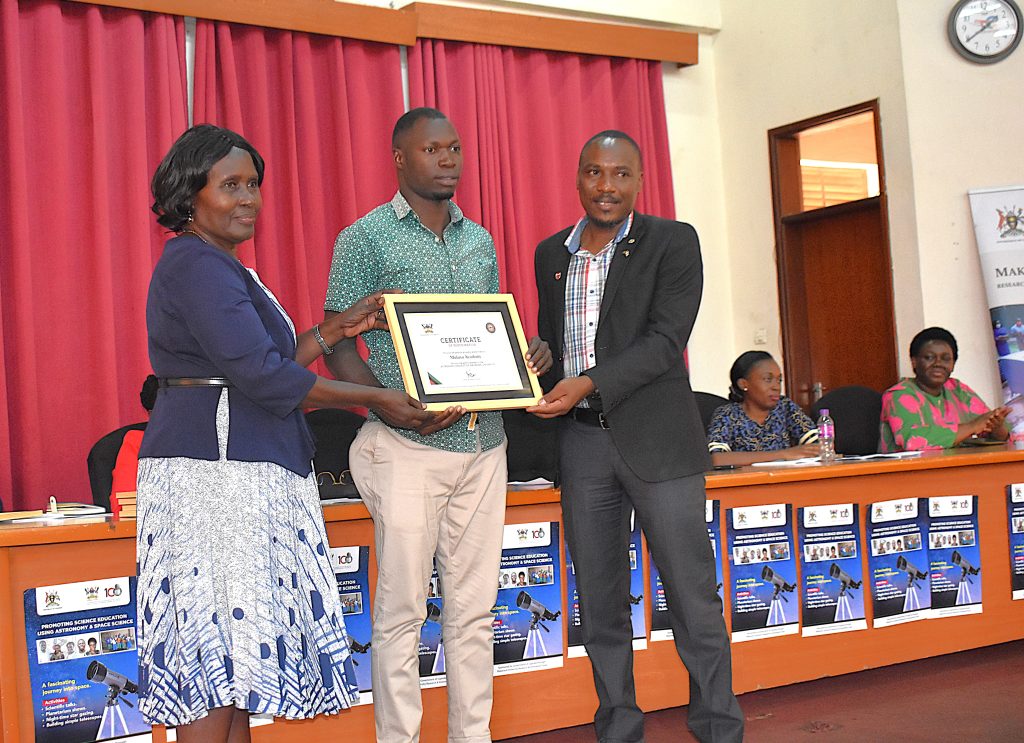
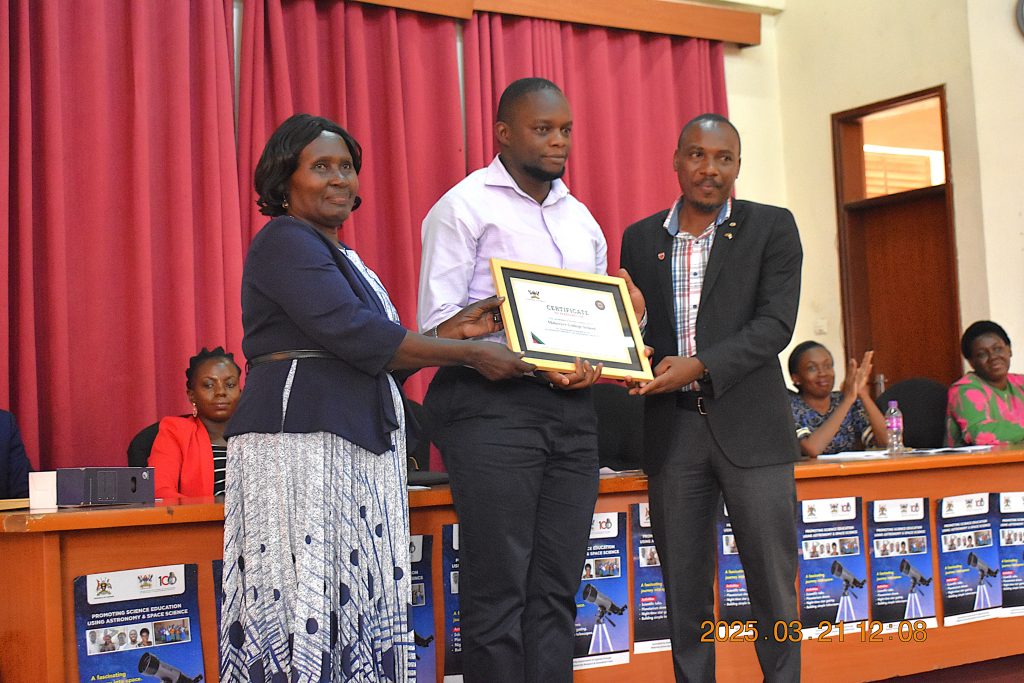
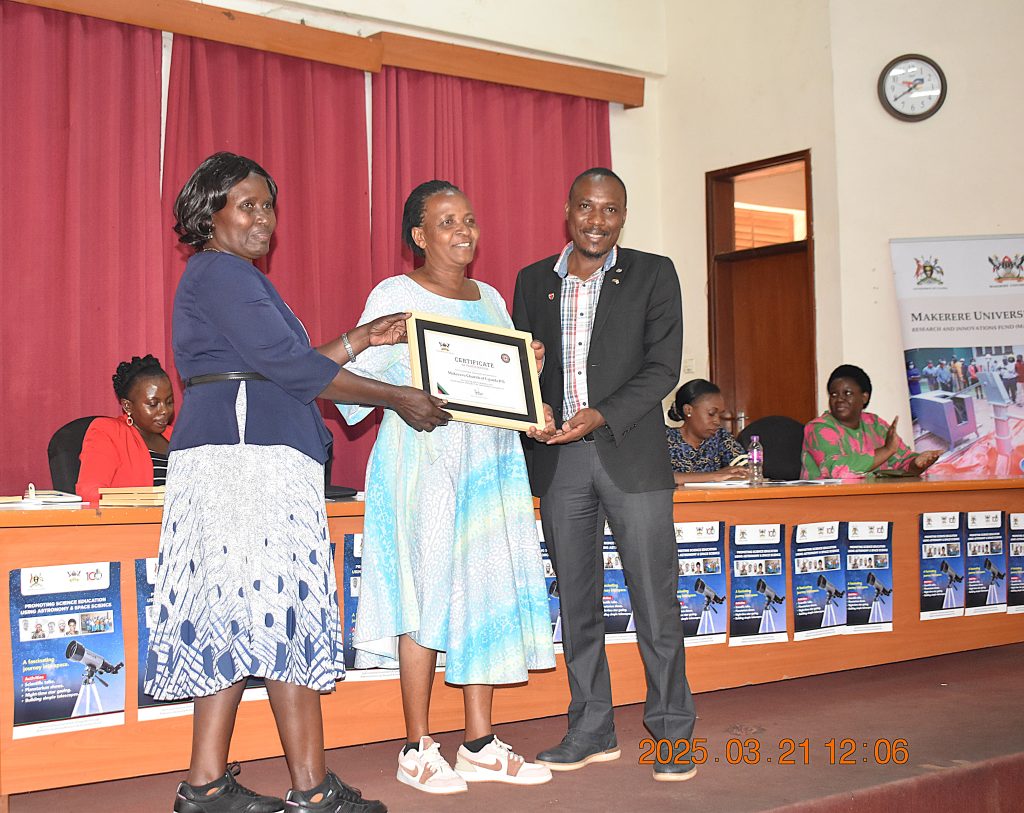
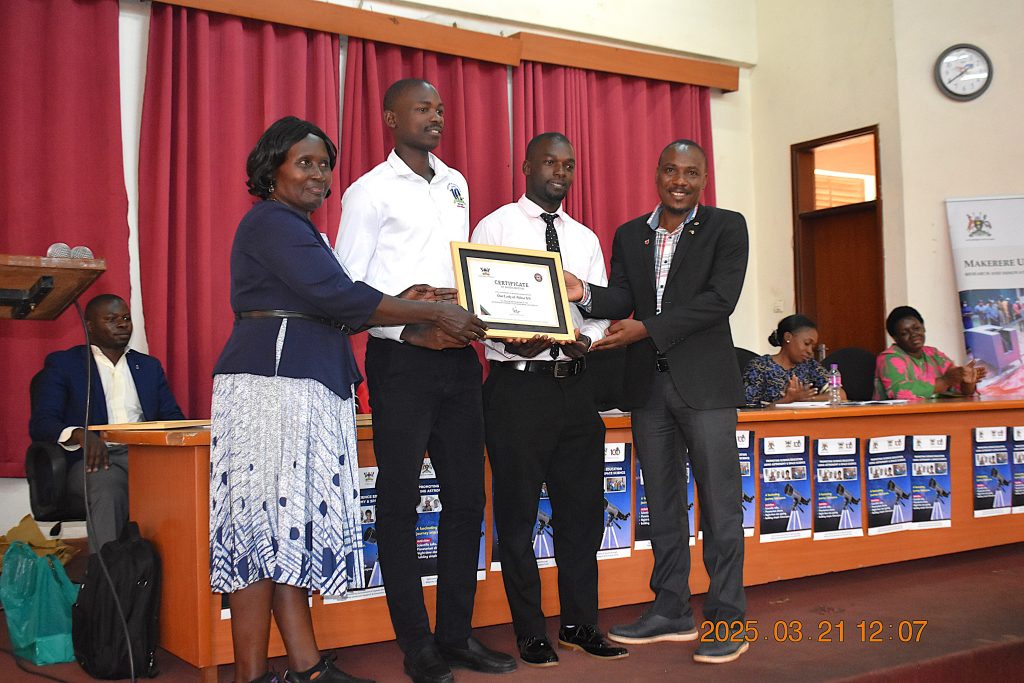
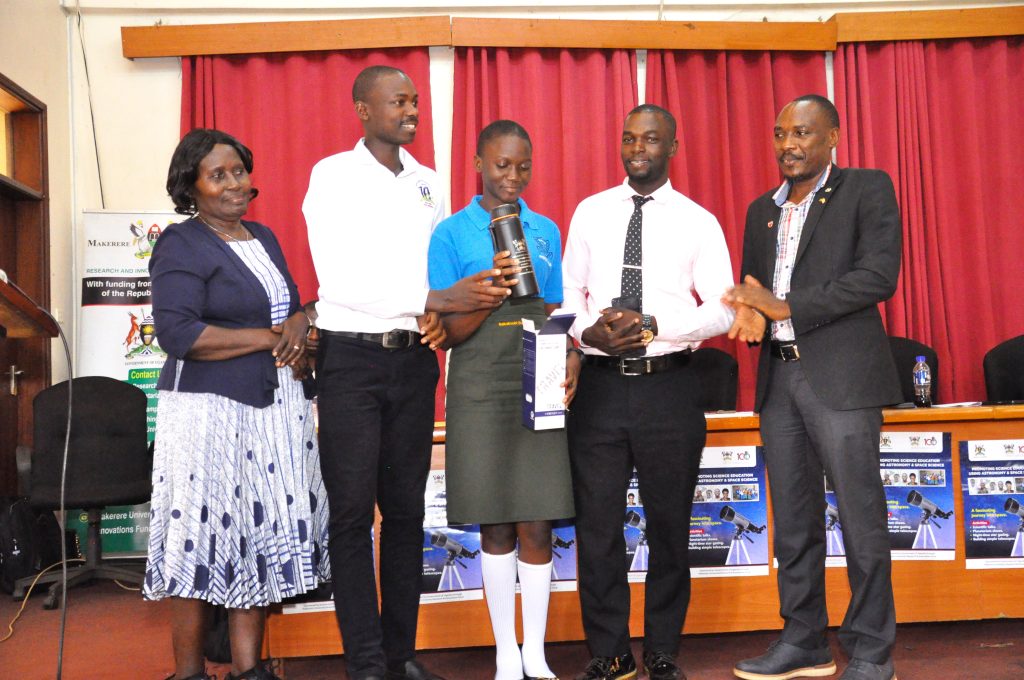
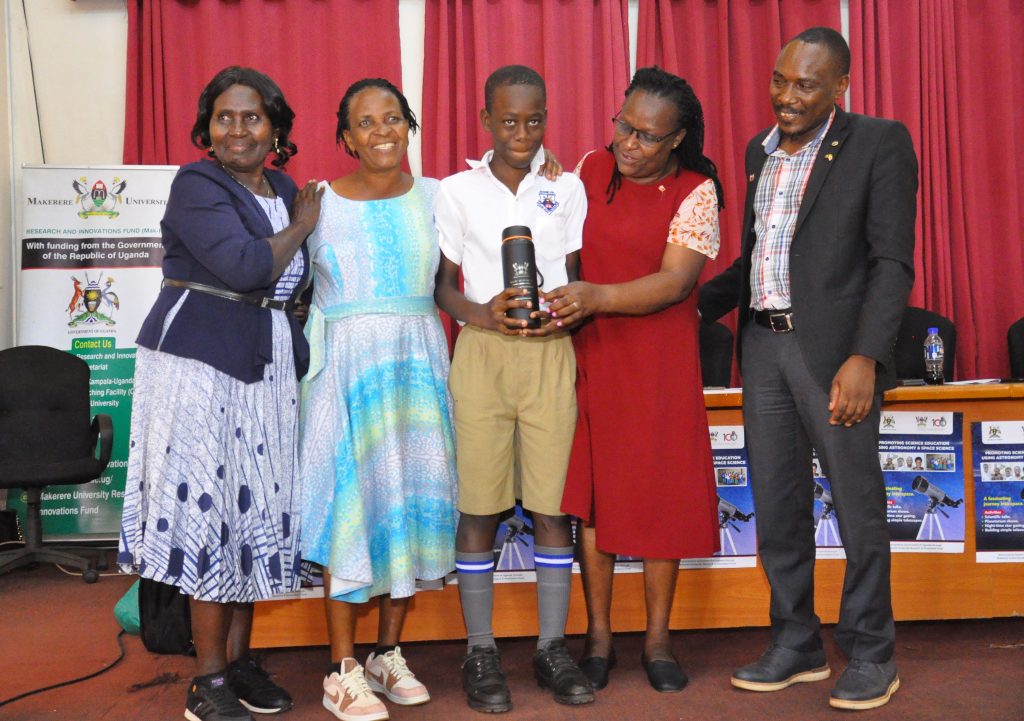
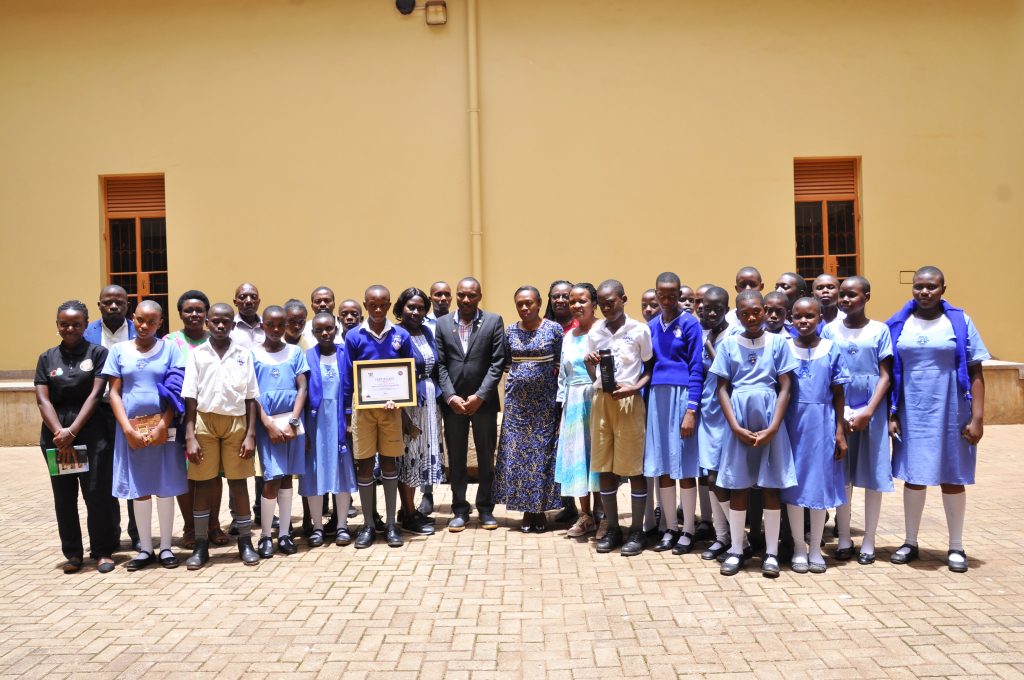
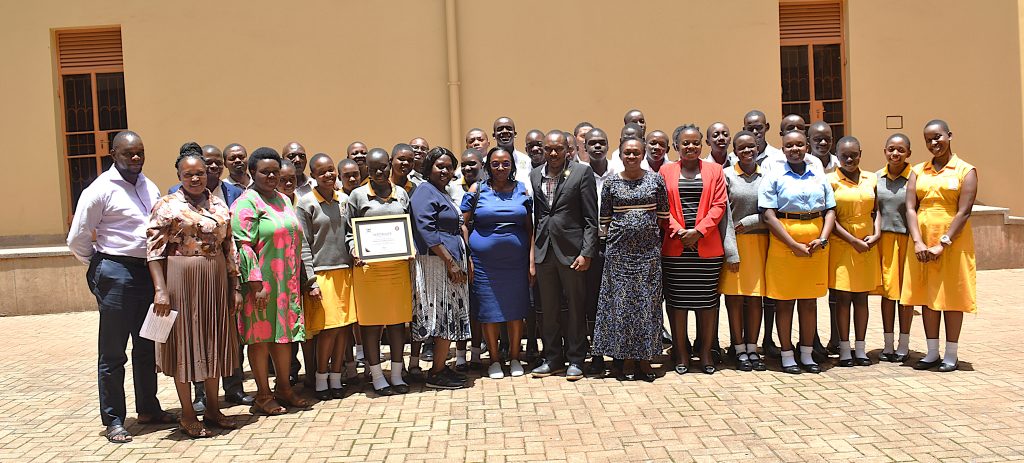
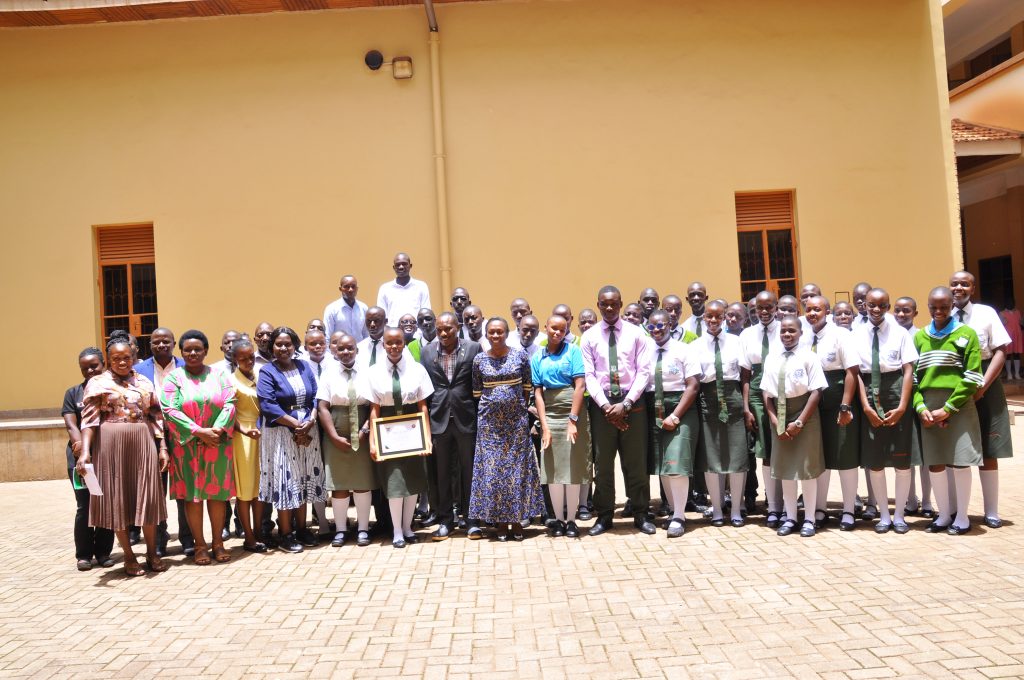
Click on the link below for the pictorial of the dissemination conference;
https://drive.google.com/drive/folders/1Wv5xLOwiNe8Tc9uOWBpt9xvOtwffLHdo?usp=sharing

